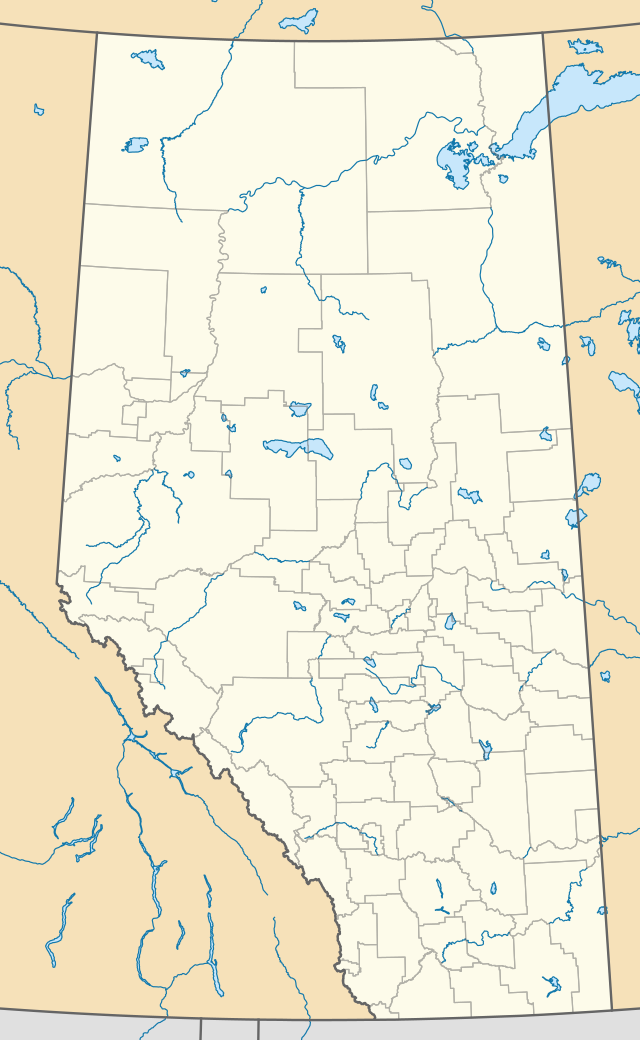Leslieville, Alberta
Leslieville is a hamlet in Alberta, Canada within Clearwater County.[2] It is located east of Rocky Mountain House along the Canadian National Railway and has an elevation of 965 metres (3,166 ft).
Leslieville | |
|---|---|
 Location of Leslieville in Alberta | |
| Coordinates: 52.3833°N 114.6047°W | |
| Country | |
| Province | |
| Census division | No. 9 |
| Municipal district | Clearwater County |
| Government | |
| • Type | Unincorporated |
| • Reeve | John Vandermeer |
| • Governing body | Clearwater County Council
|
| Area | |
| • Total | 1.84 km2 (0.71 sq mi) |
| Elevation | 965 m (3,166 ft) |
| Population (2011)[1] | |
| • Total | 239 |
| • Density | 130/km2 (340/sq mi) |
| • Dwellings | 105 |
| Time zone | UTC-7 (MST) |
The hamlet is located in census division No. 9 and in the federal riding of Wetaskiwin. It was first settled in 1903.[3]
Demographics
As a designated place in the 2016 Census of Population conducted by Statistics Canada, Leslieville recorded a population of 238 living in 90 of its 96 total private dwellings, a change of -0.4% from its 2011 population of 239. With a land area of 2.26 km2 (0.87 sq mi), it had a population density of 105.3/km2 (272.8/sq mi) in 2016.[4]
As a designated place in the 2011 Census, Leslieville had a population of 239 living in 95 of its 105 total dwellings, a 3% change from its 2006 population of 232. With a land area of 1.84 km2 (0.71 sq mi), it had a population density of 129.9/km2 (336.4/sq mi) in 2011.[1]
See also
References
- "Population and dwelling counts, for Canada, provinces and territories, and designated places, 2011 and 2006 censuses (Alberta)". Statistics Canada. 2012-02-08. Retrieved 2012-04-07.
- Alberta Municipal Affairs (2010-04-01). "Specialized and Rural Municipalities and Their Communities" (PDF). Archived from the original (PDF) on 2012-02-29. Retrieved 2010-06-22.
- Rocky Mountain House Reunion Historical Society (1977). Days Before Yesterday : History of Rocky Mountain House district. Rocky Mountain House: Rocky Mountain House Reunion Historical Society. p. 111. ISBN 0-88925-003-0.
- "Population and dwelling counts, for Canada, provinces and territories, and designated places, 2016 and 2011 censuses – 100% data (Alberta)". Statistics Canada. February 8, 2017. Retrieved February 13, 2017.